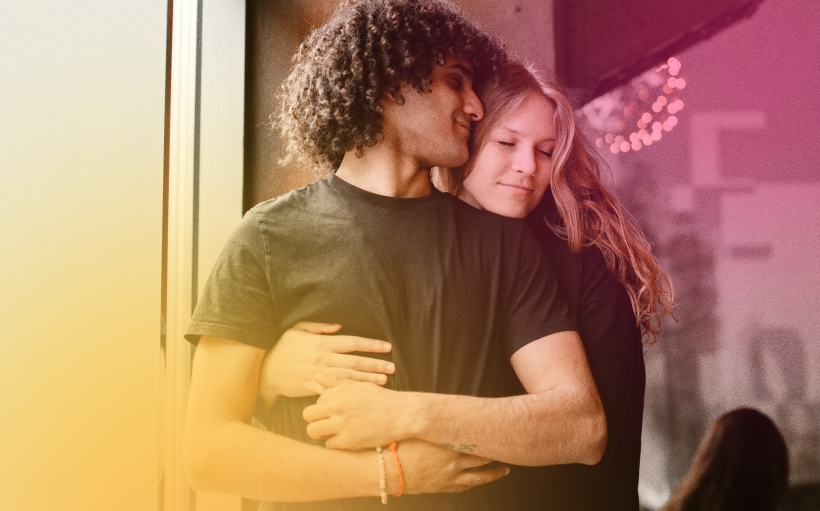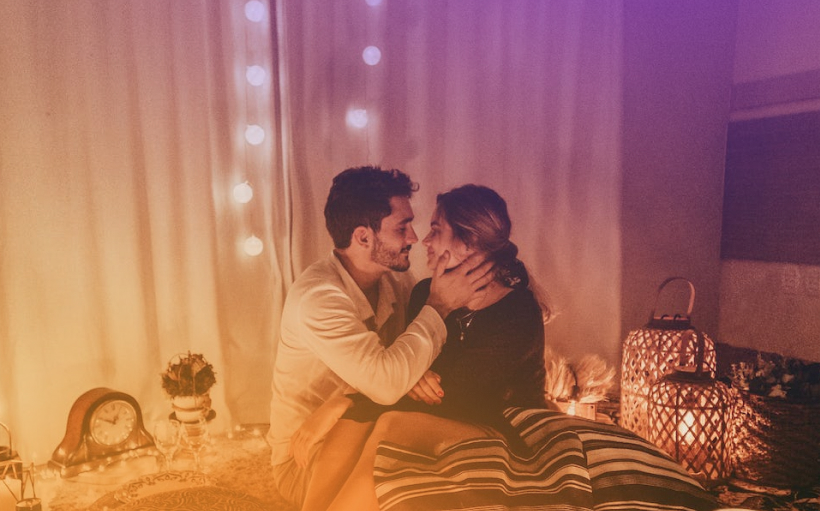After taking a required Intro to Psychology course as an undergrad, I have never looked back. Since my doctoral program, I have specialized in adult relationship therapy. Through my studies and clinicals, I wrote several articles for professional journals and currently in the midst of writing a book.
Unconditional Love—Fantasy or Reality?
In a healthy family environment, parents have unconditional love for their children. This is often known as parental love, meaning loving their kids, accepting them fully, and not getting anything in return as a condition for that love. In this environment, kids grow up feeling secure. According to studies, unconditional maternal love and nurturing result in kids who have fewer mental health issues as adults. And it doesn’t even have to be one’s own child. A caregiver can perform the same function.
But let’s be honest, who had such a fairytale love in their childhood? And what about romantic relationships? Can there be unconditional love in those too, and does it have the same emotional well-being effects that it does on kids? The answer seems to be yes, easily. But how to find and nurture unconditional love in yourself? This question is harder to answer.
Let’s unpack this whole matter of unconditional love – what it is, how it manifests in healthy relationships, and when it can become toxic.
Defining Unconditional Love
Unconditional love means loving someone with no strings attached and not expecting anything in return. It means accepting a romantic partner for who they are, faults included, and often sacrificing some of your individual needs for theirs.
How is giving without expecting anything in return even possible for unconditional love? Here’s the interesting thing: according to psychiatry research, the brain’s reward system is activated in both the giving and receiving of unconditional love on the part of mature adults. In other words, the very act of unconditional love, if properly delivered and acknowledged, is a rewarding experience by itself.
3 Feelings That Unconditional Love Gives and How It Looks Like
Here’s how unconditional love in a romantic love relationship can manifest itself. One partner has decided to go back to school for an advanced degree. It will mean both professional and personal growth and a better future for both – eventually. But it will also mean financial and personal sacrifices on the part of the other partner. That other partner willingly agrees. They are placing the well-being of their partner ahead of their own.
The story itself is not enough, so here are the key features of unconditional love.
1. Provides a Sense of Security
When you know that your partner loves you, will always support you, accepts your faults, and forgives your unacceptable behavior if and when it occurs, you feel secure in your relationship. There is no better feeling than that.
And unconditional love refers to a willingness to go through hard times with as much support as the partner may need. With some limits, though.
Related reading: All You Need to Know About Hot and Cold Behavior

2. Is Altruistic
Altruism means that an individual takes actions that will help and support others without expecting anything in return. They are focused on being of benefit to others. Thus, we contribute to charities, volunteer our services, and help others in need.
Suppose as a teacher, you observe a child with ragged and torn shoes; you know the family’s financial circumstances are bad. You buy a pair of shoes for that child. That is altruism in action.
In romantic relationships, altruism shows itself in completing acts of service because they benefit your partner or make them happy. A partner takes pleasure in doing these things because they love unconditionally, and the relationship is worth their care and nurturing. And the brain’s reward system kicks in whether those altruistic actions are given or received.
3. Means Acceptance and Forgiveness
Any family therapist will state that, in a healthy family relationship, a child is accepted for the person they are, even as they move into more difficult teenage years. If they engage in unacceptable behavior, they may have consequences, but forgiveness is forthcoming, and unconditional love is never withheld.
So it is when partners unconditionally love each other. Each of them will make mistakes, some that may hurt the other. But they still feel unconditional love for one another, work through those issues, and forgive.
Acceptance refers to a partner’s understanding that the other will probably not change their current behaviors, values, and even those things that are little annoyances. Acceptance means that they do not pressure their partner to change. If they cannot accept their partner for who they are, then it’s not unconditional love and it’s time to head out.
If you don’t head out, you will jeopardize the emotional well-being of both of you, and you both may need individual therapy. And there is online therapy for couples too. Sometimes, this can work.
Related reading: What Is a Guilt Trip in Relationships

3 Ways How Partners May Experience Unconditional Love
When two human beings offer unconditional love to one another, there are some key things they will experience in their relationship.
1. They Both Have Space
Every person needs their own space to be who they are, to have their own friends and activities, and to make their own choices for their future. Neither person who is loving unconditionally will ever show disapproval or attempt to control the independent “space” of their partner. They deserve their own life as an individual.
Control never co-exists with unconditional love. A person who attempts to control another person is in the relationship for their personal gain, not that of their partner. If you are giving unconditional love to a controlling person, you will lose all sense of who you are. And you will never be able to fully meet their expectations. If you stay in the relationship, you will become depressed and stressed, and ultimately need therapy to gain your sense of self back again. And that in-person therapy can be lengthy, depending on how long you have sacrificed your psychological well-being for someone who was only a taker.
2. Unconditional Love Means Partners Decide Who They Are
Again, both partners have the right to be and to become who they want to. And loving unconditionally means that each partner accepts this in the other and supports their healthy changes and evolution.
Note the word “healthy.” Loving someone unconditionally does not mean that you have to live with your partner’s bad choices – you have a right to your healthy boundaries. You should not be tolerating abuse or addictions, for example.
If those boundaries are violated, you must choose to be who you are. You can still have compassionate love for the person, but you no longer have a healthy connection. It’s time to leave.
3. Keeping Unconditional Love Healthy = Unconditional Positive Regard
Mature love, which is also unconditional love, is often termed unconditional positive regard, a term originated by psychologist Carl Rogers, and it refers to person-centered psychotherapy, in which the therapist accepts and supports the patient exactly as they are, without injecting their personal thoughts or opinions.
In romantic relationships, this concept is quite similar, but while you are not injecting your own thoughts or opinions, you still have boundaries, and you still must be true to yourself. If you think that unconditional love means you have to be everything to and do everything for your partner with absolutely no strings attached, you are not experiencing unconditional mature love.
Related reading: Boundaries in Relationships – Keeping Them Healthy

3 Things What Unconditional Love Is Not
There is often the misconception that unconditional love is actually toxic because a partner sacrifices too much of themselves and their life for someone else. The other misconception is that unconditional love means accepting unacceptable behavior and “putting up with it” because to love wholeheartedly demands it, no matter what their feelings about the behavior may be.
So here is what unconditional love is not.
1. Ignoring Issues
Anyone who has expectations that unconditional love by each person in a relationship means they will never have conflict or disagreements is naïve.
Suppose your partner decides to go back to school, take out student loans to do so, and change from full-time to part-time work. He has only mentioned wanting to do this in passing, and you are caught completely unaware. This decision will impact you financially for at least several years to come.
It is a selfless act to forgive that partner for not considering your feelings and happiness, but unconditional love does not mean you do not confront the lack of respect their action shows. And if it is a major breach of trust in your book, then you can still love them unconditionally as you choose to leave the relationship. Loving someone unconditionally does not mean that will be joined at the hip, ignoring issues that you should expect to arise.
2. Neglecting Your Needs and Wants
You offer love freely, meaning unconditional love and engaging in selfless acts to please them and to make their life pleasant. And because there is a neural basis that makes you feel good with every selfless act, you have happy feelings too.
If your unconditional love is taken to the extreme, though, you may find yourself sacrificing too much. You stick to the idea that true love means you must serve your partner above all else. And you may feel guilty when you put your needs first in certain circumstances.
This is not a healthy life for you. When you ignore your needs and wants, making only unconditional love important, it’s not the type of love you can sustain over time. And if a partner is giving you the idea that they may withhold love if you do not always put them first, then that partner is engaging in some serious conditional love. It’s not the type of love you want, and your life will always be out of balance.
Lasting relationships based on real love mean that the needs and wants of both partners matter. If you are sacrificing your important needs, you can still unconditionally love your partner as you walk away.
Related reading: Setting Healthy and Fair Expectations in a Relationship
3. Tolerating Repeated Bad Behavior and/or Abuse
This relates to meeting your own needs too. If your partnered person engages in an act of bad behavior, your unconditional love will bring you to forgiveness. And if that person has respect for you, that bad act will not be repeated.
If that bad behavior continues to be repeated, then you should be getting the feeling that things are not going to change. Your unconditional love doesn’t die, of course, but your feeling about the relationship will. Again, give them your unconditional love as you walk away.
Emotional and physical abuse are in categories all their own. They are both intolerable, even though you love your partner.
You have a basic right to emotional and physical safety.
Suppose your partner says unkind things to you, either privately, or worse, publicly. If you take these to heart, your self-esteem is damaged a bit more with each act. You must confront this early on, rather than just tell yourself it’s just part of their personality. And if it is part of their personality, they need therapy.
Physical abuse is a red line you must draw. Even one incident cannot be tolerated. Pack your bags immediately.
You can love that person unconditionally and want the best for them, but now you do it from afar if they treat you badly.
You’ll Meet Unconditional Love When You’re Ready to Love Unconditionally
Unconditional love brings happiness to both the giver and receiver. It activates that part of the brain that makes us feel good.
Unconditional love brings us to accept each other for who we are now and who we want to become. It allows us both to follow our dreams, to have independence and space, to forgive, and to find joy in selfless acts toward each other.
But unconditional love must be mature and grounded in reality too. It means confronting issues, compromising, not sacrificing who you are, and setting boundaries that are not to be crossed. You can give someone unconditional love but choose not to be their partner.








